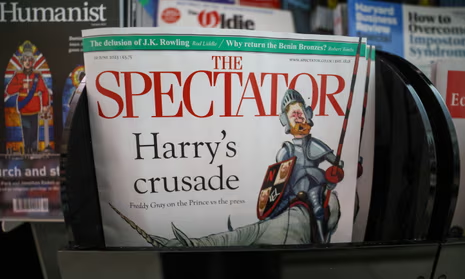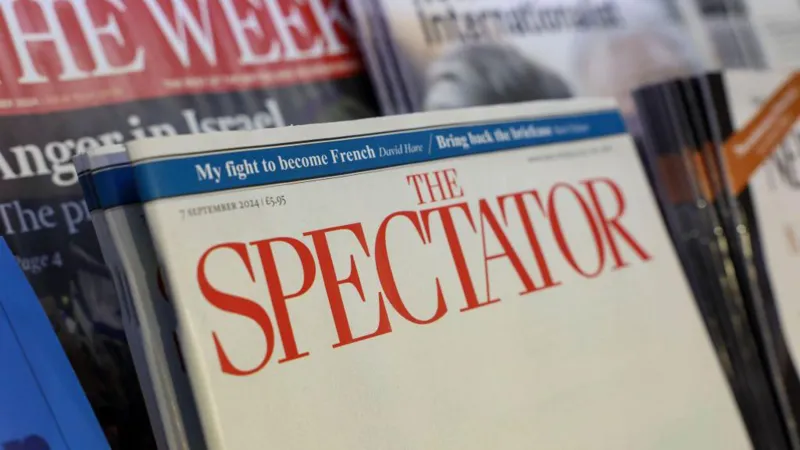In a significant shift in the media world, Sir Paul Marshall has bought The Spectator magazine for £100 million through his media group, Old Queen Street (OQS). The acquisition is a major step towards expanding Marshall’s influence in the media sector following his recent investment in GB News. The deal also sees the departure of The Spectator chairman Andrew Neil, who has stepped down citing concerns over hedge funds owning news publications.
A new chapter for The Spectator
Founded in 1828, The Spectator is one of the world’s oldest political and current affairs magazines. Its new ownership under Sir Paul Marshall promises a new investment approach aimed at reviving the magazine. Marshall, a long-time reader of The Spectator, expressed excitement about his new acquisition, and vowed to address the lack of previous investment in the publication.

Marshall’s OQS Media Group has a history of significant investments in the media sector, including GB News, which launched in 2021. His purchase of The Spectator is in line with his broader strategy to build a strong portfolio of right-wing media outlets. The deal also reflects his commitment to supporting traditional journalism and maintaining editorial independence.
Sir Paul Marshall: The man behind the deal
Sir Paul Marshall, co-founder of hedge fund Marshall Wace, is a man better known in financial and political circles than to the general public eye. With an estimated net worth of £875 million, Marshall has made his mark through philanthropy and political engagement. He has supported a variety of causes, including education and social entrepreneurship, and is known for being associated with the conservative side of politics.
Marshall’s change from a Liberal Democrat to a Conservative supporter reflects his changing political landscape, along with his support for Brexit. His investments in media, including founding the news website Unherd and significant contributions to GB News, have cemented his role as a prominent figure in right-wing media circles.

Andrew Neil’s departure and its implications
Andrew Neil has resigned as chairman of The Spectator, following his criticism of the news outlet’s ownership by hedge funds. Neil had previously expressed concerns about potential conflicts of interest from such ownership. His departure signals a significant change in the magazine’s leadership, and his comments reflect wider debates about media ownership and integrity.
Neil’s resignation comes in the wider context of The Spectator’s sale, which follows the seizure of the magazine and the Telegraph newspapers by Lloyds banking group. The newspapers, originally owned by the Barclay family, faced financial difficulties, which led to them being divested and subsequently sold.
The wider media landscape
The acquisition of The Spectator by Marshall is part of a larger trend of consolidation and realignment within the media industry. With increasing financial pressure on traditional media outlets, investments made by people like Marshall are seen as crucial to their survival and growth.
The sale has also highlighted the ongoing debate about media ownership and influence. The British government is investigating media mergers to ensure a diversified and high-quality news landscape. The sale of The Spectator to Marshall comes at a time when there are calls for tighter regulation to keep pace with changes in media ownership and protect journalistic independence.

The future of The Spectator
Looking ahead, the impact of Marshall’s acquisition on The Spectator remains to be seen. His commitment to investing in the magazine and supporting its editorial independence is a positive sign for its future. However, the wider implications of this deal for the media landscape and Marshall’s ambitions to build a right-wing media empire will be closely watched.
As the media world continues to evolve, the sale of The Spectator underscores the importance of understanding the motivations and impacts of media ownership changes. For readers and industry observers, The Spectator’s future under Marshall’s leadership will be a key development.
